Conservation: The family-owned farm of La Hermandad, located on the lush slopes of San Ramón, cultivates only two-fifths of its 131 acres of land. The remainder is conserved as native cloud forest. “If we want to expand, we’ll buy new land but we won’t eat into the forest”, says 32-year-old Marvin Mairena, the youngest of nine brothers and sisters who comprise the co-operative. In addition, the co-operative has introduced citrus trees and other native species to provide shade for its coffee plants. “If you visit the farms around here, you’ll see that much of the forest has now been cut down”, says Mairena.
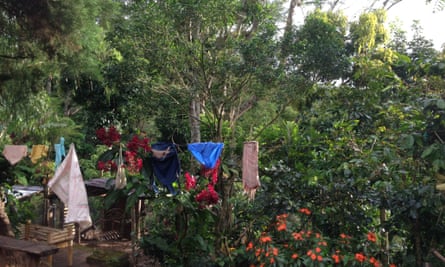
Agro-ecology: Farmers at the Danilo González co-operative are experimenting with a novel bio-fertilizer based on decomposed leaves mixed with molasses sugar, ground rice, grass and water. The mixture is left for a month to ferment before cow manure and various mineral salts are added in a second fermentation stage. Soon the co-operative plans to replace the methane-producing cow dung for nutrient-rich solid waste from an innovative biodigester project that it is currently piloting.
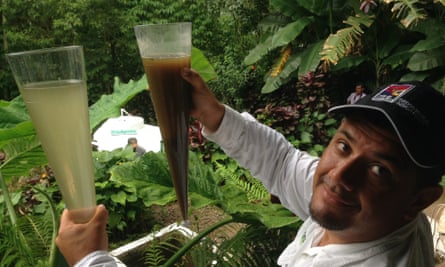
Coffee rust: Over recent years, Nicaragua’s specialty coffee farmers say they have witnessed major fluctuations in humidity, precipitation and temperature levels. One impact of these changes in climate patterns is an increase in coffee rust, a disease which rarely occurred at high altitudes in the past. An outbreak of the disease caused losses worth $60m in 2012-2013 and continues to affect coffee plantations across the country. Danilo González saw its 2013 harvest drop by 80% compared to 2010 levels due to coffee rust. At La Hermandad, the farmers are planting varieties such as Pacas and Red Catuai, which are more resistant to coffee rust.
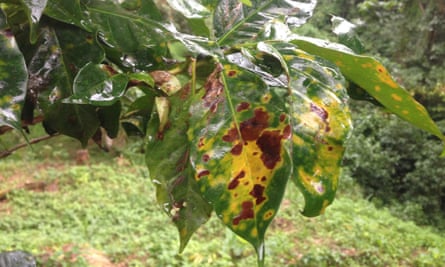
Food security: In an effort to increase the community’s nutrition and reduce food costs, the remote Danilo González is participating in a pioneering food security programme. Supported by UK charity Save the Children, the programme encourages families to keep a small vegetable patch close to their homes. “The home-grown produce comes into its own in the months between harvests when our income drops a lot”, says 25-year-old local resident Nilda Lopez, whose mother generates a small additional income selling the family’s surplus produce at a local market. The programme includes advice on how to cook nutritious recipes.
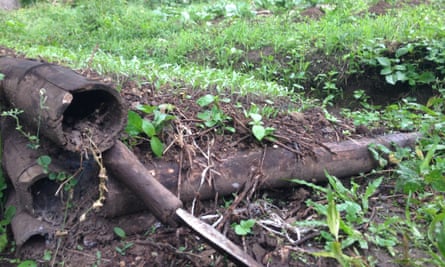
Ecotourism: 10 years ago, the Danilo González co-operative opened its doors to its first paying visitors as part of an ambitious diversification plan. 14 families are now involved, many of which offer accommodation in their own homes. Around 500 tourists come every year, each paying just under £10 per day for food and lodging. “People are interested to see what a working coffee farm is like, and many are interested to learn about our co-operative model as well”, says 41-year-old Vertalina Lopez, one of the initiative’s main protagonists.
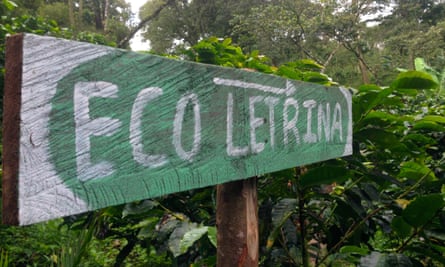
Exchanging experiences: La Hermandad has an ecotourism programme too. To that end, the co-operative has developed two eco-trails through the forest, as well as a stunning viewpoint at the top of the farm. “We receive university researchers, students and eco-tourists from overseas, as well as other co-operative members who come to learn what we are doing and exchange ideas”, says 40-year-old co-operative member Sebastían Mairena. Earlier this year, the co-operative signed an official partnership with student group Fair Trade 2.0 of West Virginia University after several years of working together.
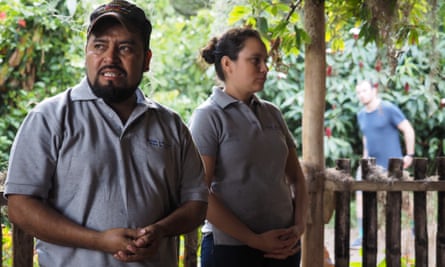
Education: The members of La Hermandad hold closely to a vision of development that emphasises the holistic growth of an individual, not just their economic welfare. Education lies at the heart of that vision. The nine Mairena siblings count engineers, accountants and business administration graduates among their number. Several are beneficiaries of scholarships issued by the co-operative’s umbrella federation, Cecocafen, with support from overseas donors. A proportion of the co-operative’s profits is earmarked for schoolbooks, cleaning products and other materials for the local primary school. The schoolhouse is also used for adult education, religious study and Coffee Camp, a day-care programme for the children of seasonal coffee pickers.
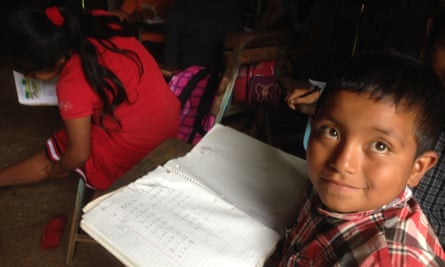
Solidarity: The importance of solidarity provides a guiding philosophy in both communities. “We used to have a lot of divisions because of the war”, says Sebastían Mairena, referring to Nicaragua’s bloody internal conflict during the 1980s. “So, although we all have our own political views, we decided that it is best to leave these aside and work in fraternity with other families”, he adds. The Danilo González co-operative takes its name from a 17-year-old resident killed while on military service during the 1980s. Both co-operatives have strong commitments to gender equality as well. Danilo González counts 33 male members and 32 female members.
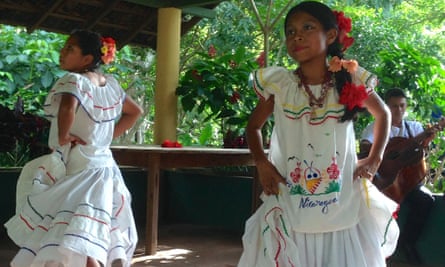
Read more stories like this:
- Lessons from Finland: building a co-operative economy
- Credit unions are increasingly an alternative for banks and payday loans
- Lessons for co-operatives on ensuring a fair and democratic structure
The co-operatives and mutuals hub is funded by The Co-operative. All content is editorially independent except for pieces labelled ‘brought to you by’. Find out morehere.
Join the community of sustainability professionals and experts. Become a GSB member to get more stories like this direct to your inbox
Comments (…)
Sign in or create your Guardian account to join the discussion